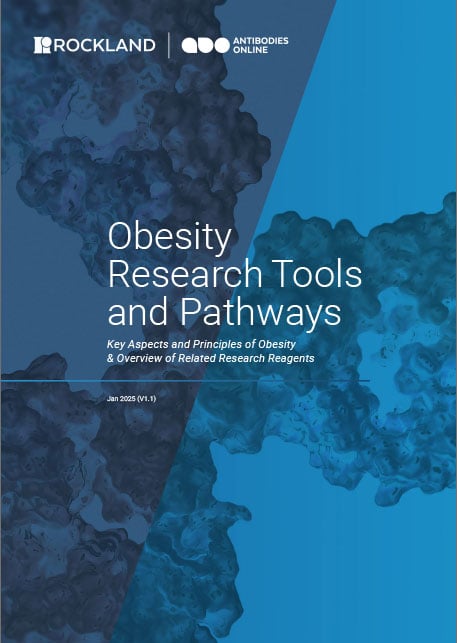Obesity eBook
Obesity, a condition often associated with metabolic diseases, has its roots in the fundamental biological functions of body fat. Body fat, or adipose tissue, originally evolved to play a critical role in energy storage, protecting delicate organs, and regulating reproduction through complex hormonal signals. In vertebrates, specialized cells known as adipocytes are responsible for storing energy in the form of lipid droplets. However, despite its important role, excess body fat can lead to severe health issues, including cardiovascular diseases (CVD), and an increased risk of certain cancers and type 2 diabetes (T2D). This overview covers the various factors that contribute to obesity as well as the research tools available for studying these pathways.
eBook Highlights:
- Glucagon, GLP-1 and the Obesity Pandemic
- Glucose Metabolism
- Glucose Transporters
- Adipokine Antibodies, Proteins, and Kits
- Adipocyte Differentiation & Function
- Extracellular Matrix (ECM) Components
- Fibrosis Markers
- Gut Microbiota-Related Targets
- Hormones and Metabolic Regulators
- Inflammatory Markers
- Lipid Metabolism Enzymes
- Oxidative Stress Markers
- Other Related Pathways
This handbook is a collaborative effort between Rockland and antibodies-online, two companies united in their commitment to advancing scientific research. Together, we have developed a comprehensive resource, offering a suite of high-quality products specifically designed to facilitate the study of obesity-related mechanisms. By combining Rockland’s expertise in assay development and antibodies-online’s extensive catalog of research tools, this guide aims to empower researchers to explore the complexities of obesity and its associated diseases with cutting-edge solutions.
